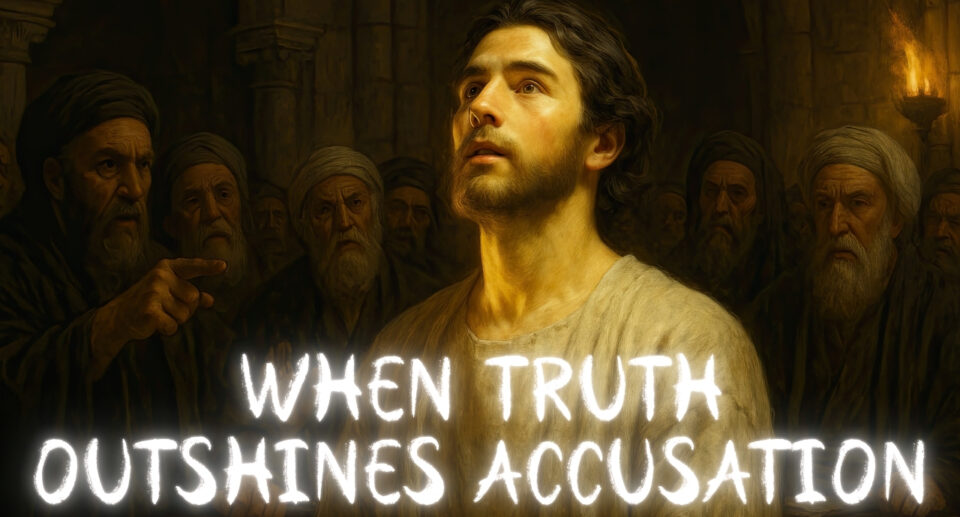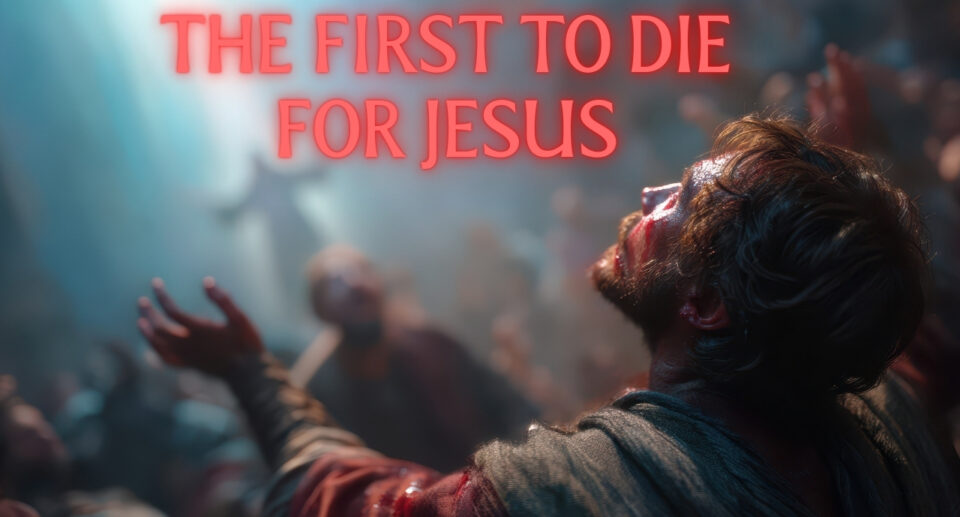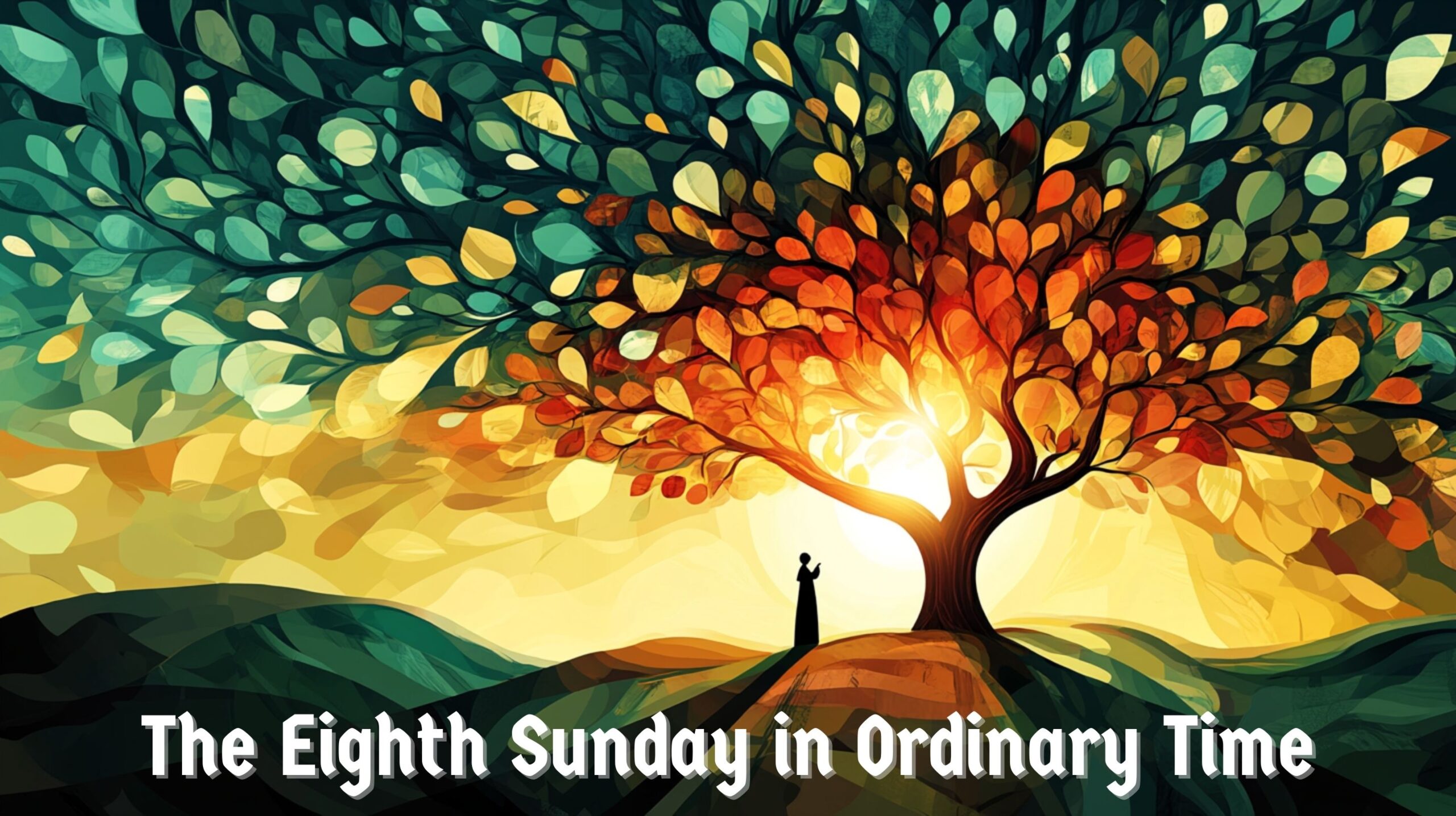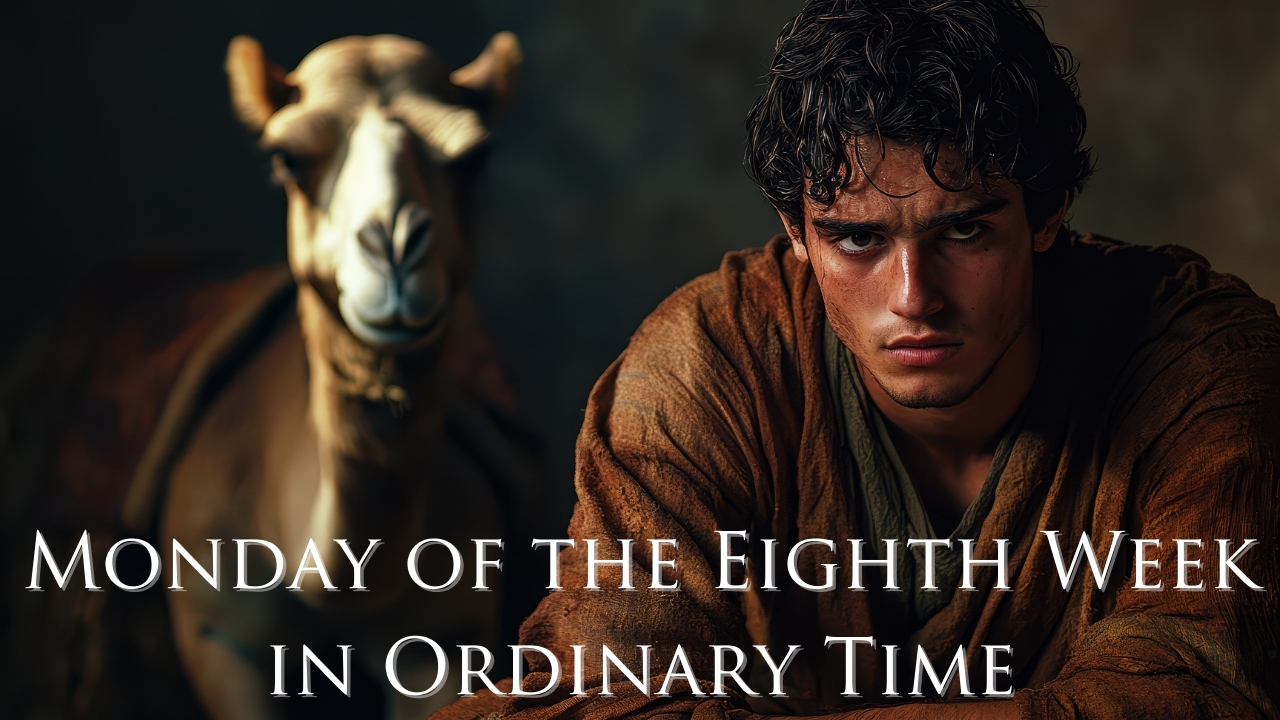Radiant Defiance: When Truth Outshines Accusation | Daily Readings | May 5, 2025

May 5, 2025 – Daily Readings from the Catholic Lectionary, Monday of the Third Week of Easter. Stephen stands before accusers with a face like an angel. Crowds chase Jesus demanding more bread. Both reveal what happens when divine truth confronts human resistance. Through this reflection, discover:
- Why Stephen’s glowing face echoes Moses on Mount Sinai
- What sustained martyrs throughout history when facing false accusations
- The connection between bread that perishes and truth that endures
- How to develop radiant presence rather than aggressive defense
Readings covered: Acts 6:8-15; Psalm 119:23-24, 26-27, 29-30; John 6:22-29
Perfect for anyone facing opposition to their deepest values, struggling with working for “food that perishes,” or seeking to understand how truth ultimately prevails despite resistance.
#MondayOfEaster #RadiantDefiance #StephenMartyr #BreadOfLife #TruthPrevails #DailyGospel
Radiant Defiance: When Truth Outshines Accusation
The courtroom falls silent. Everyone stares, transfixed. The accused man stands before his judges, surrounded by hostile witnesses and false accusers. But something unexpected happens—instead of cowering in fear, his face begins to glow with an otherworldly light, “like the face of an angel.” In this moment of extreme vulnerability, Stephen manifests an unmistakable radiance that testifies to a reality his opponents cannot see.
Have you ever witnessed truth embodied so powerfully that it transcends words? Today’s readings reveal an extraordinary pattern: when divine truth collides with human resistance, something mysterious and transformative occurs.
Stephen’s story in Acts echoes an ancient pattern that stretches back to Moses descending Mount Sinai with a radiant face. Both men carried truth that challenged the status quo, both faced fierce opposition, and both were transformed by their intimate encounter with God. Stephen’s luminous countenance wasn’t makeup or metaphor—it was visible evidence of the Holy Spirit’s presence erupting through human flesh.
What his opponents failed to understand was that their resistance wasn’t really against Stephen but against the divine reality he embodied. The Sanhedrin could drag him to court, produce false witnesses, and eventually stone him to death, but they couldn’t extinguish the light that shone through him. This pattern repeats throughout history—think of Joan of Arc before her inquisitors, or the Coptic martyrs in Libya in 2015, faces serene even in their final moments.
Our Psalm today reveals what sustained Stephen in this moment: “Even though princes sit plotting against me, your servant will meditate on your statutes. Your decrees are my delight; they are my counselors.” While conspiracies formed around him, Stephen remained anchored in divine wisdom. The psalm writer understood that when external voices bring accusation, God’s word brings clarity.
In John’s Gospel, we see Jesus facing a different kind of resistance—the crowd’s demand for more bread after the miraculous feeding. They tracked him down across the Sea of Galilee, not seeking truth but seeking more miraculous food. Jesus challenges their shallow pursuit: “You are looking for me not because you saw signs, but because you ate your fill of the loaves.”
Here lies a fascinating connection between our readings: both reveal the human tendency to resist transformation while seeking material benefit. The Sanhedrin wanted to preserve religious power while resisting Stephen’s prophetic witness. The crowd wanted more bread while missing the Bread of Life standing before them.
Jesus redirects their focus with words that connect beautifully to Stephen’s experience: “Do not work for the food that perishes, but for the food that endures for eternal life.” Stephen embodied this truth—he wasn’t working for earthly approval or security but for something imperishable. His radiant face revealed someone nourished by food his accusers knew nothing about.
These readings, placed together in today’s liturgy, invite us to consider: What sustains us when facing opposition? What are we truly working for?
The Persian poet Hafez wrote, “I am a hole in a flute that the Christ’s breath moves through.” Stephen became such a vessel—so transparent to divine presence that light literally shone through him. The false witnesses brought distortions and lies, claiming Stephen spoke “blasphemous words against Moses and God.” Yet Stephen stood as living proof of Moses’ own experience of transfiguration through divine encounter.
Historically, this confrontation marks a pivotal moment in early Christianity. Stephen’s speech that follows today’s reading became the catalyst for the first major persecution of Christians, scattering believers beyond Jerusalem and inadvertently spreading the gospel throughout Judea and Samaria. What his opponents intended to suppress became the seed of expansion. The Byzantine Emperor Constantine would later build the first church dedicated to Stephen in the 5th century, marking how this “defeated” witness ultimately transformed an empire.
The readings also challenge our contemporary fixation on productivity and tangible results. “This is the work of God,” Jesus says, “that you believe in him whom he has sent.” In our achievement-oriented culture, belief itself seems too passive, too simple. We want techniques, strategies, measurable outcomes. Yet both Stephen and Jesus point to something more fundamental: the transformative power of alignment with divine truth.
What happens when we stand in this alignment? Like Stephen, we may face opposition—perhaps not from a formal council, but from a culture that often resists deeper truth. Economic systems that measure human worth by productivity resist the truth of inherent dignity. Political tribalism resists the truth of our shared humanity. Consumer culture resists the truth that we cannot fill spiritual hunger with material bread.
Yet these readings suggest a counterintuitive response to such resistance. Not withdrawal or aggressive confrontation, but a kind of radiant presence that comes from being deeply nourished by eternal food. Stephen didn’t argue with his accusers—he simply stood before them with a face that testified to another reality.
The question for us becomes: What are we feeding on? What nourishes our inner life? When opposition comes—whether as outright hostility or subtle pressure to compromise—what sustains us?
Psalm 119 offers practical wisdom: “Make me understand the way of your precepts, and I will meditate on your wondrous works… Put false ways far from me; and graciously teach me your law.” This isn’t about rigid rule-following but about aligning with the deeper patterns of divine wisdom. When we internalize these patterns, they become our counselors, guiding us when external voices clamor for attention.
Perhaps today’s readings are paired in the lectionary to show us the beginning and end of a spiritual journey. It starts with recognizing, like the crowd in John’s Gospel, that we hunger for something more. But it doesn’t end with consuming more miraculous bread. It culminates in becoming, like Stephen, so transparent to divine presence that it transforms even our physical countenance.






